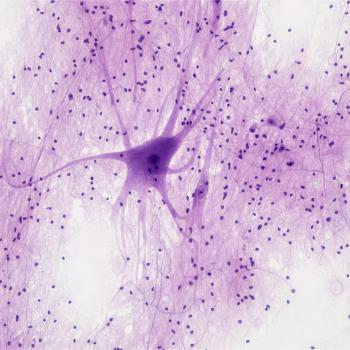It isn't uncommon to hear people who are responding to last week's killings in Aurora, Colorado, describe the man who perpetrated them as "pure evil." I think I understand what is happening when they say that. They don't intend what they say literally. They are, at least, saying the same kind of thing they might say by describing that event as "unimaginable." Faced with horrific events, hyperbole is appropriate and expected.
The danger of hyperbole is that we or others may begin to take what we say literally. We may make people who commit such atrocities into monsters, beings outside the human race. Perhaps we use such events as occasions to think of those who commit them as radically different from us.
But the horror of these kinds of tragedies is not that they were committed by someone completely different than we are, but that they were committed by someone who, in spite of the evil that he has done, is in many respects like us. The horror is in our commonality rather than in our difference. And that is true even if he is not, as many believe, insane.
Many years ago I worked for a while as a prison guard. I worked in minimum security, in medium security, in maximum, and on death row. When I began at the prison, I was surprised to discover that the people I worked with were like me in many ways, from those guilty of writing bad checks to those on death row. It didn't take long to learn how wrong I'd been. I'd imagined one thing when I started and discovered something completely different.
That experience made me understand better what Christians mean when we say, "We are all sinners." It made me understand much better my situation before God as a sinner. In the course of our lives who has not at some times said with Paul, "I do not do what I want to do, but instead I do what I hate" (Romans 7:15; my translation)?
One reason that we must pray for those who despitefully use [threaten] us (Matthew 5:44) is that we too sometimes threaten others. We should pray for those who threaten or harm us because they need the same mercy we do.
We are rarely threats to the mortal lives of others, but the threat we pose can nevertheless cause damage. We can do psychological and spiritual damage to other lives. And often we do harm when we least think we do because we are so good at deceiving ourselves about what we do.
We ought not to minimize the wrong done to the victims in Aurora. We absolutely ought not to do so. That would be a sin because we would refuse to recognize their value and their suffering and the suffering of those who love them. But there is also no point in minimizing our own sinfulness by maximizing the sinfulness of others. Perhaps that isn't happening in this case. If not, wonderful. But it happens often enough that we must beware.
Neither human acts nor human beings are ever purely evil, and without Christ's sacrifice we could not be made purely good.
12/2/2022 9:09:20 PM





